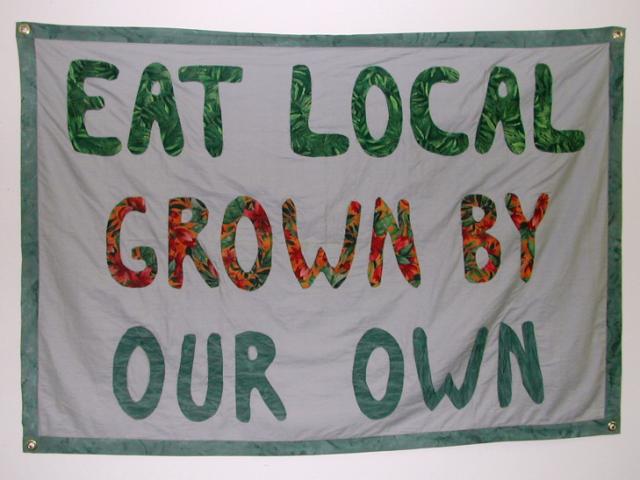Never underestimate the ability of industry – and that includes farmers, processors, retailers and food service — to co-opt that which is trendy for marketing purposes. Hucksterism is alive and well and flourishing (see the Hellmann’s campaign below).
Julie Schmit of USA Today writes that the "locally grown" label is part of retailers’ push to tap into consumer desires for fresh and safe products that support small, local farmers and help the environment because they’re not trucked so far.
 Just how do some retailers define locally grown?
Just how do some retailers define locally grown?
• Wal-Mart, the nation’s biggest retailer, considers anything local if it’s grown in the same state as it’s sold, even if that’s a state as big as Texas and the food comes from a farm half the size of Manhattan, as in the case of the 7,000-acre Ham Produce in North Carolina.
• Whole Foods, the biggest retailer of natural and organic foods, considers local to be anything produced within seven hours of one of its stores. The retailer says most local producers are within 200 miles of a store.
• Seattle’s PCC Natural Markets considers local to be anything from Washington, Oregon and southern British Columbia.
And while there is a perception that local, like organic food, is safer, such assumptions are made in the absence of any evidence.
 Robert Brackett, senior vice president of the Grocery Manufacturers Association, said most foodborne illnesses don’t get noticed because not enough people get sick to alert officials that an outbreak is underway. Undetected outbreaks are more likely with "local" products delivered in small quantities and sold in a small area.
Robert Brackett, senior vice president of the Grocery Manufacturers Association, said most foodborne illnesses don’t get noticed because not enough people get sick to alert officials that an outbreak is underway. Undetected outbreaks are more likely with "local" products delivered in small quantities and sold in a small area.
Matt Regusci, head of business development for PrimusLabs.com, a leading produce food-safety auditor, said small producers are also less likely than big ones to have had food-safety audits, which grocers often demand of big suppliers, adding,
"The vast majority of food safety is common sense. Are there a few small idiots out there messing things up for everybody? Yes. But there are big idiots out there messing things up, too."

